Iran Directly Helped Hamas Prepare Terror Attack On Israel - WSJ

Iran’s Revolutionary Guard helped devise the terror attack plan that Hamas launched on Southern Israel on Saturday, killing hundreds, the Wall Street Journal has reported.

Iran’s Revolutionary Guard helped devise the terror attack plan that Hamas launched on Southern Israel on Saturday, killing hundreds, the Wall Street Journal has reported.
In an exclusive report on Sunday, the WSJ quoted senior unnamed Hamas and Hezbollah members, who said Iranian officials were involved in planning the large-scale operation and the final decision to launch the operation was made in Beirut October 2.
The Iranian regime has not shied away from signaling its involvement and support to Hamas, which is largely financed and armed by Tehran. Supreme Leader Ali Khamenei, President Ebrahim Raisi and a host of other officials and the state media have widely expressed their satisfaction with the attack.
The fact that senior Hamas and Hezbollah officials spoke about Iran’s direct involvement could be sign of Tehran’s eagerness to show its reach as Israel and Saudi Arabia were on the verge of establishing diplomatic relations. Iran had warned against any normalization with Israel.
Despite the Iranian regime’s open endorsement of the attack and its long-standing material support for Hamas, Secretary of State Antony Blinken on Sunday stated that the United States does not have any evidence of Tehran’s direct involvement.
The Biden administration has come under heavy criticism for continuing diplomatic contacts with the Islamic Republic and agreeing to release $8.7 billion in blocked Iranian funds since June. Critics say that any financial means put at the disposal of the regime will enable it to finance terrorism in the region and the world.

As the death toll from Hamas attack on Israel surpassed 700, the US said it will send multiple warships and aircraft closer to Israel as a show of support.
Hamas fighters rampaged through Israeli towns as the country suffered its bloodiest day in decades on Saturday. Israel battered Gaza with airstrikes on Sunday, inflicting many casualties. Many voiced concern that the spiraling violence can lead to a major new war in the Middle East.
Defense Secretary Lloyd Austin announced the military deployment on Saturday, adding that the US will be rapidly providing the Israel Defense Forces with additional equipment and resources, including munitions, and that its security assistance will begin moving on Sunday and arriving in the coming days.
“I have directed the movement of the USS Gerald R. Ford Carrier Strike Group to the Eastern Mediterranean. This includes the US Navy aircraft carrier USS Gerald R. Ford (CVN-78), the Ticonderoga-class guided missile cruiser USS Normandy (CG 60), as well as the Arleigh-Burke-class guided missile destroyers USS Thomas Hudner (DDG 116), USS Ramage (DDG 61), USS Carney (DDG 64), and USS Roosevelt (DDG 80). We have also taken steps to augment U.S. Air Force F-35, F-15, F-16, and A-10 fighter aircraft squadrons in the region,” Austin said.
“Over the coming days the Department of Defense will work to ensure that Israel has what it needs to defend itself and protect civilians from indiscriminate violence and terrorism,” he said Sunday.
General Michael Kurilla, the Commander of the US Central Command said in a statement, "USCENTCOM stands firmly with our Israeli and regional partners to address the risks of any party seeking to expand the conflict."
US President Joe Biden told Prime Minister Benjamin Netanyahu on Sunday that additional assistance for the Israeli Defense Forces was on its way and more would follow in the coming days, the White House said after their call.
"It wouldn't be a surprise that part of the motivation may have been to disrupt efforts to bring Saudi Arabia and Israel together, along with other countries that may be interested in normalizing relations with Israel," US Secretary of State Antony Blinken told CNN earlier on Sunday.
Blinken also said that there was not yet any evidence seen by the United States of Iran being behind the attack, but he noted the long-standing ties between Iran and Hamas. Blinken's statement contradicts years of evidence which has proven that Iran pays Hamas around $100m annually, as was announced in 2018 by the then Middle East envoy Jason Greenblatt, under the Donald Trump administration.
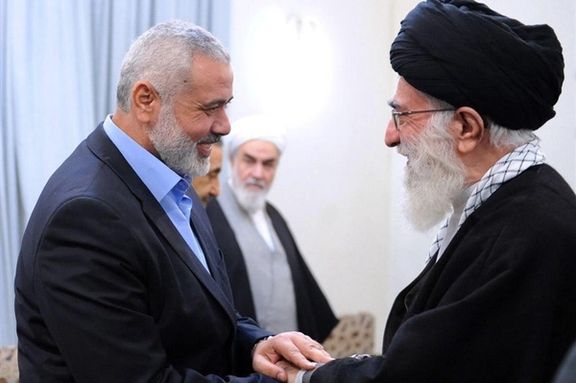
In spite of evidence to suggest the Saturday morning attack which began with a barrage of thousands of rockets fired into Israel's southern region, followed by a land, sea and air invasion of troops, was carefully planned, Blinken tried to suggest the attacks could have been more of an operation orchestrated by militants in Gaza and the Hezbollah in Lebanon.
US Deputy National Security adviser Jon Finer told Fox News Sunday that Saudi-Israel normalization efforts should continue despite the latest attack. "We think it would be in both countries' interests to continue to pursue this possibility," he said.
The attack by Hamas launched at dawn on Saturday is the biggest and deadliest incursion into Israel since Egypt and Syria launched a sudden assault in an effort to reclaim lost territory in the Yom Kippur war 50 years ago.
With reporting by Reuters
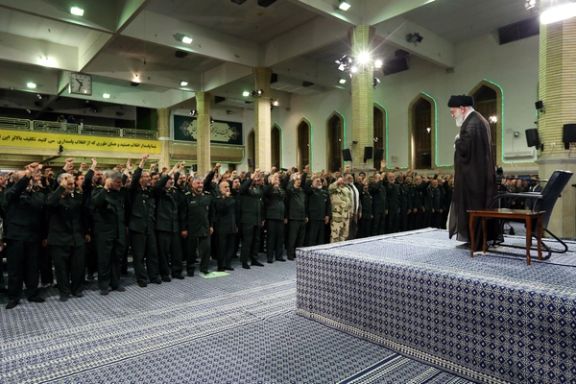
Elon Musk has called on Iran’s Ali Khamenei to change his anti-Israel policy, posting on his social media platform X, where the Iranian ruler also is allowed to have an account.
Musk, speaking out on Sunday after the large-scale terrorist invasion of Israel that has killed more than 700 Israelis, said, “Khamenei’s official position is clear that the eradication of Israel is the actual goal, not just supporting Palestinians,” and added, “That will never happen.”
Khamenei who has multiple accounts on X (formerly Twitter) uses the platform to spread hateful speech. Activists have been long urging both Twitter’s former management and later Elon Musk to ban Khamenei from the platform. However. Khamenei was again to publish a post after the attack on Israel, although a note below the post said it “violated the X Rules,” but the company “determined that it may be in the public’s interest for the Post to remain accessible.”
Musk addressed Islamic Republic’s ruler, saying, “Stoking the fires of hatred isn’t working. Perhaps it is time to consider something else.”
Khamenei and many other Iranian officials over the years have called for the destruction of Israel and for decades have financed and armed militant and terrorist groups in Lebanon, Palestinian territories and other regional countries.
The Iranian regime has congratulated Hamas for its terror attack, while hundreds of Israelis including women and children have been kidnapped and taken to Gaza under inhumane conditions.
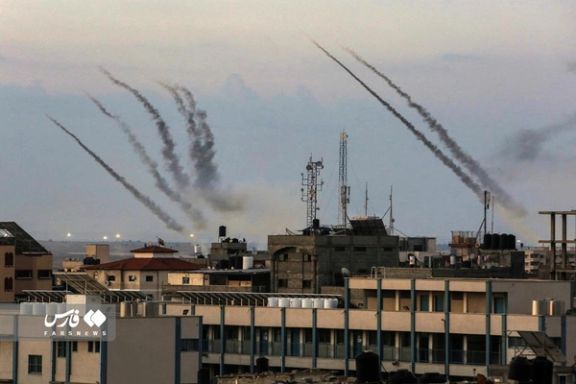
Hamas' 7/10 invasion and terror attack on Israel, akin to Egypt's 1973 October surprise, shall be remembered as a most infamous day in Arab-Israeli conflict.
In the wake of the attack, experts have scrambled to account for the failure in Israeli intelligence. The answer seems to be hiding in plain sight: the IDF and intelligence is overtaxed and overworked. Hamas’ patron, Iran, has escalated its anti-Israeli intelligence and sabotage plots over the past seven months to an unprecedented scale. Indeed, on September 11, 2023, Israel’s intelligence chief announced their success in thwarting twenty-seven attacks planned by Iran against Israeli citizens and Jews around the world. He further warned Iran that should the attacks persist, Israel would retaliate directly against the main culprits of the attacks in Tehran.
The escalation in planned attacks over the past seven months correspond to the amount of time roughly needed to plan the 7/10 invasion. Whether these planned attacks were meant to distract Israeli forces is unknown. However, thwarting twenty-seven attacks certainly drained a lot of intelligence resources.
Now, on the second day after the attack, Biden administration officials announced on CNN that Iran was directly involved in Hamas’ ruthless mass carnage in Israel.
Asymmetrical surprise attacks on Israel are not unprecedented. Palestinians had previously infiltrated Israel with gliders once before in November 1987, and no doubt Hamas leaders used “the Night of the Gliders” as a template. Israel swiftly launched retaliatory attacks and an incursion of a magnificent scale is only days away.
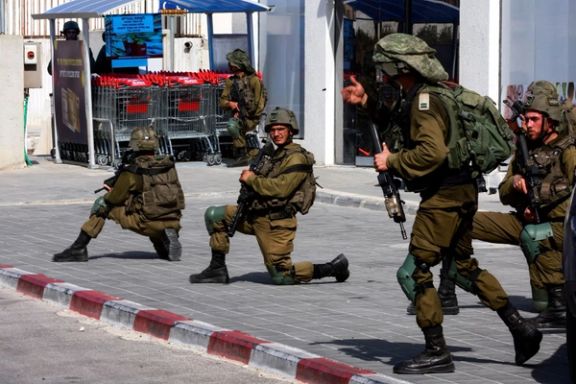
Since its founding in 1979, the Tehran regime has made no friends but rogue actors (Syria and Libya) in the region. It has vowed to destroy Israel as an article of faith and export its revolution to other Arab states.
Hatred for Israel is quintessential to the regime’s fanatical character, even more than its disgust for the region’s Arab states. The Mullahs in Tehran have acted as patrons to the Lebanese Hezbollah and Palestinian militants (Islamic Jihad and Hamas) by supplying them with missiles to attack Israel over the past twenty years, prompting Israel to oblige in kind.
Avowing Israel’s destruction, the Iranian regime has also sought to gain all the needed material for possible nuclear weapons production. Israel has bludgeoned the Iranian nuclear program with debilitating attacks deep inside Iran, as well as surgical strikes against Hezbollah and the Iranian Islamic Revolutionary Corps (IRGC) in Syria. Waging a proxy war with Saudi Arabia and UAE in Yemen since 2015, the Iranian regime cut ties with the Saudis over regional differences during the same period, only to renew relations in March 2023 with China’s mediation.
Tehran greeted the rapprochement of the Israel-Persian Gulf Arab states and the Abraham Accords with loathing, and finds the Saudi-Israeli rapprochement equally appalling for it could herald the establishment of the Peninsular Shield Force against Iran. As the Saudis conditioned their rapprochement with Israel on Israeli concessions to the Palestinian authority, the rapprochement would elevate the Palestinian Authority’s position eclipsing Hamas to the point of irrelevance.
Wary of the Saudi Israeli rapprochement, Hamas leaders increased their overt and covert visits to Tehran. One can only speculate what sabotage and terror operations did they concoct during these visits. Then, only four days before the attack, Iran’s supreme leader Ali Khamenei exclaimed Iran’s animosity towards the Saudi Israeli rapprochement: “The definite position of the Islamic Republic is that countries that make the gamble of normalisation with Israel will lose. They are betting on a losing horse.” Only with the benefit of hindsight can we now decipher Khamenei’s words as a prayer to derail Saudi Israeli rapprochement, signalling the Hamas 7/10 attack.
From the early hours of the conflict, many observers have been quick to blame the 7/10 intelligence failure on Israel’s domestic strife over the government’s proposed judicial reforms. Some cite as evidence the letter by several ex-government security advisors to the speaker of the Knesset who warned “the lack of agreement (over judicial reforms) could undermine Israel’s security, as “the national resilience of Israeli society” has enabled the country to tackle external threats.”
However, Israel has been unrelenting in its deterrence operations.Israel’s “intelligence failure” could be equally ascribed to “alert and constant readiness fatigue” as they ever more vigorously implemented the Israeli deterrence doctrine. But to attribute the “intelligence failure” to domestic Israeli peaceful protests over the judicial reforms grossly underestimates the undisputed track record of the Israeli intelligence and security services and the IDF. After all, Israel has been ruled by right-wing coalition governments over the past twenty years along a consistent national security doctrine.
As Israel continues to wage its deterrence war against Iran, the burden of its task has overwhelmed its resources. The last word on the intelligence failure must be left to the aegis of Israeli parliamentary democracy, military, and security echelons as Israel persists as determined as ever.

US Secretary of State Antony Blinken said Sunday that the Biden administration does not have any evidence of Iran’s involvement in the terrorist attacks on Israel.
"In this specific instance, we have not yet seen evidence that Iran directed or was behind this particular attack, but there’s certainly a long relationship." The statement came in response to the ongoing attacks launched by Hamas fighters on Israel's southern region, resulting in the death of hundreds and the capture of civilians and soldiers.
Blinken's statement contradicts years of evidence which has proven that Iran pays Hamas around $100m annually, as was announced in 2018 by the then Middle East envoy Jason Greenblatt, under the Donald Trump administration.
In spite of evidence to suggest the Saturday morning attack which began with a barrage of thousands of rockets fired into Israel's southern region, followed by a land, sea and air invasion of troops, was carefully planned, Blinken tried to suggest the attacks could have been a way to destabilize US-brokered discussions of normalization between Israel and Saudi Arabia which have only in recent weeks gained momentum.
Blinken instead said that rather than Iran being behind the assault in which Hamas declared war on Israel, it could instead have been Hamas and Hezbollah, which are both Iran-backed proxies. In the nonsensical explanation, he said, "Look, who opposes normalization? Hamas, Hizballah, Iran. So, it wouldn’t be a surprise that part of the motivation may have been to disrupt efforts to bring Saudi Arabia and Israel together".
Many politicians and ordinary Americans have raised concerns about whether the recent $6bn of released Iranian funds in exchange for five dual nationals, could have helped fund the attacks which have been raging since Saturday at dawn. "No US taxpayer dollars were involved. These [$6bn] were Iranian resources that Iran had accumulated from the sale of its oil that were stuck in a bank in South Korea.”
He alleged that not a single cent had been spent from that account, with strict limitations on its use for medical supplies and food.
As the conflict continues to impact Israeli civilians, Secretary Blinken said the onslaught "should be something that revolts the entire world."
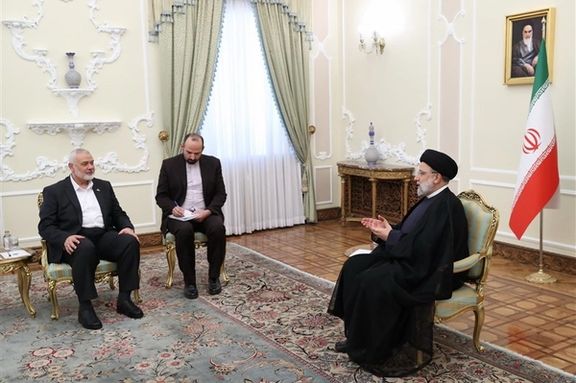
Iran's President Ebrahim Raisi has spoken with leaders of Palestinian terror groups, Hamas and Palestinian Islamic Jihad, one day after Hamas launched a surprise attack on Israel.
Raisi discussed the developments in calls with Ziyad al-Nakhalah, secretary general of the Islamic Jihad Movement, and Ismail Haniyeh, the head of the Hamas political bureau, according to the state news agency.
Iran has praised the Palestinian attack, describing it as a "proud operation" and a "great victory" and celebrations have been ringing out in Tehran.
“This victorious operation, which will facilitate and accelerate the collapse of the Zionist regime, promises the impending destruction of the Zionist regime,” said Ali Akbar Velayati, a senior adviser to Iran’s Supreme Leader Ali Khamenei.
“I am congratulating this great and strategic victory, which is a serious warning to all compromisers in the region,” he added in a letter to Hamas and Islamic Jihad, presumably referring to Arab nations that have established diplomatic relations with Israel since the 2020 US-brokered Abraham Accords.
Fereydoun Abbasi, a member of the Iranian Parliament echoed the sentiments of Israel's destruction: "With the advanced weapons we have, we can destroy Israel. We have things they are unaware of.”
The Hamas terror group launched a surprise operation against Israel in the early hours of Saturday, the holy Sabbath and a religious holiday. They first fired thousands of rockets towards Israel before its fighters infiltrated into Israeli territory through air, land and sea.
Local media reports at least 600 Israelis have been killed, and more than 2,000 others have been wounded. Dozens more are believed to be held hostage in Gaza.
In the Israeli retaliatory attacks on Gaza, which have targeted Hamas positions and facilities, over 300 are said to have been killed, and hundreds of others wounded.